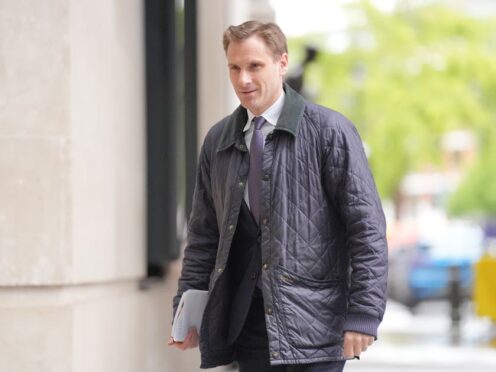Policing minister Chris Philp said he was posing a “rhetorical question” after he appeared to ask whether Rwanda and the Democratic Republic of the Congo are different countries.
The MP for Croydon South earlier this week seemed to confuse the two African nations after a Question Time audience member from Congo asked about the Government’s new law on deporting some asylum seekers to Rwanda.
The audience member pointed out there has been a long history of violent conflict between the neighbouring countries.
He asked Mr Philp: “Had my family members come from Goma (a city on the country’s border) on a crossing right now, would they then be sent back to the country they are supposedly warring – Rwanda?
“Does that make any sense to you?”
Mr Philp replied: “No, I think there’s an exclusion on people from Rwanda being sent to Rwanda.”
After the audience member objected that his parents were “not from Rwanda”, the Conservative MP appeared to ask: “Well, I mean, Rwanda is a different country to Congo isn’t it?
“It’s a different country?”
The comment caused a short outburst of laughter from some members of the debate programme’s audience as Labour shadow health secretary Wes Streeting’s eyes darted around the room.
On Sunday, Mr Philp insisted he had been posing a rhetorical question.
He told the BBC’s Sunday With Laura Kuenssberg programme: “I was struggling a little bit to hear the question.
“When I put that point to him I was asking that as a clearly rhetorical question rather than a substantive question, as I think any fair-minded listener would conclude.”
Mr Streeting, appearing alongside Mr Philp again, said he was “quite dumbstruck by the whole moment”.
UK ministers plan to send asylum seekers coming to the UK on a one-way flight to the east African nation, with the aim of deterring others from crossing the English Channel on small boats.
The legislation ensuring the plan is legally sound, the Safety of Rwanda (Asylum and Immigration) Act, cleared its passage through Parliament this week and was signed into law on Thursday.
